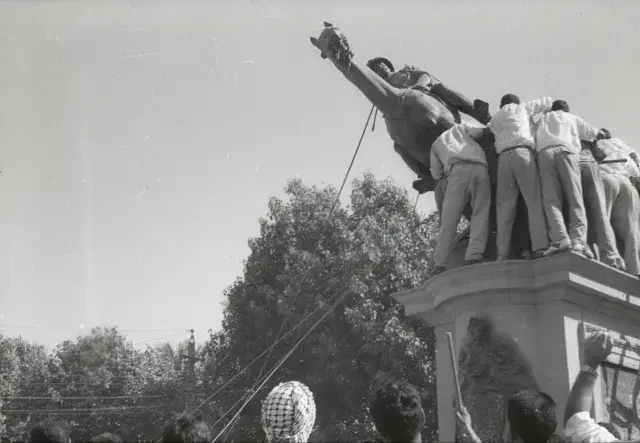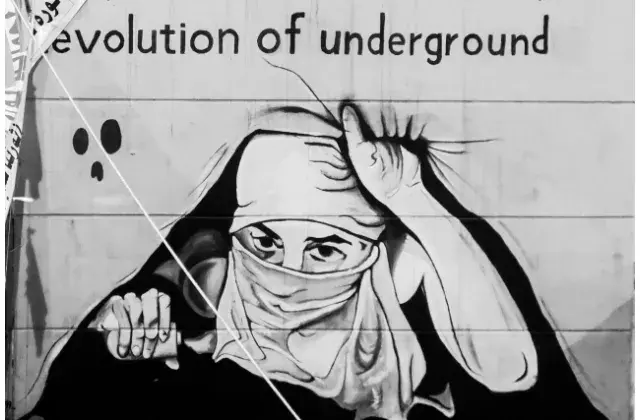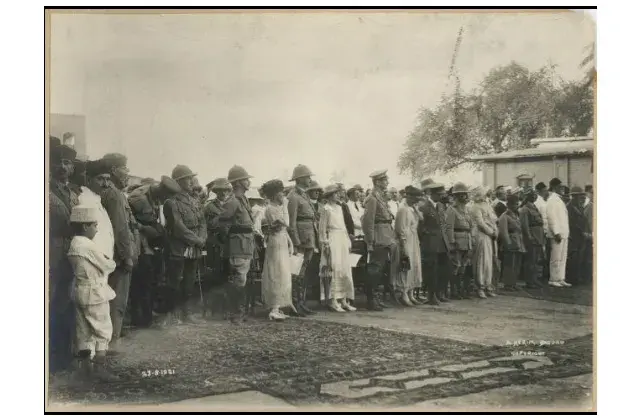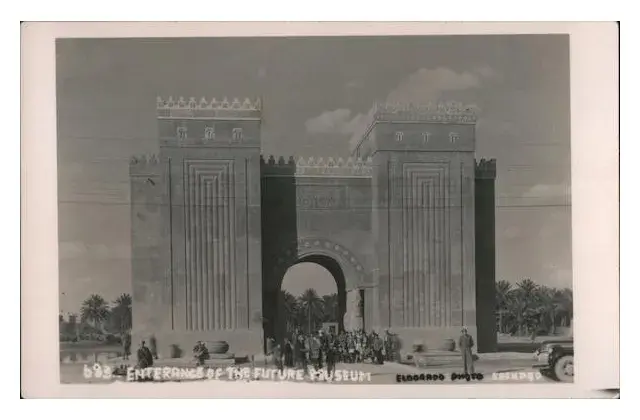The First Years of the New Republic (1958 - 1963)

The military coup to overthrow the Hashemite-led Kingdom of Iraq was headed by the Iraqi Free Officer Brigadier Abd al-Karim Qasim and Colonel Abdul Salam Arif, and supported by different opposition factions and a huge popular uprising. The Iraqi people were tired of the controversial Western-oriented policies of the ruling monarchy and the growing welfare of a specific elite, while the majority of the Iraqi people were living under harsh conditions. Officer Abd al-Karim Qasim became Prime Minister and Minister of Defence. Abdul Salam Arif became Deputy Prime Minister, Minister of Interior and Deputy Commander in Chief. Thirteen days after the revolution, a temporary constitution was announced, declaring Iraq as a republic and part of the Arab nation and with Islam as the official religion of the state. The parliament was abolished and the Sovereignty Council became the collective head of state. The state apparatus and the army were purged and Iraq withdrew from the Baghdad Pact and the Arab League and established friendly relations with the Soviet Union.
Qasim’s domestic reforms helped to implement a number of positive domestic changes, e.g. the present-day area of Sadr City in Eastern Baghdad. Built in 1959 and called Revolution City at that time, it offered housing for Baghdad’s urban poor, many of whom had come from the countryside during the 1950s. He introduced changes in the Iraqi agrarian sectors. The Agrarian Reform Law from September 1958 dismantled the old feudal structure of rural Iraq. Under Qasim, the status of women in Iraq was brought to a better equality level. He promulgated a revision of the personal status code, regulating family relations. Polygamy was outlawed, a minimum age for marriage was set and women were protected from arbitrary divorce. The laws, which brought women into a more equal status, did not survive Qasim’s government.
Abdul Kareem Qasim commissioned major monuments celebrating the 14 July revolution. The first two were the Monument of Unknown Soldier in Firduz Square (1959), and the Freedom Monument in Al Tahrir Square (1961). When the Ministry of information was established after the 1958 Revolution, it extended state patronage to artists and their exhibitions on a large scale. Building up its permanent collection of modern art, the Ministry bought works from nearly every artist who held an exhibition.
The political landscape at that time was as diverse as its population with an ongoing debate between Watani (Iraqi nationalists) and Qawmi (Arab nationalist). Brigadier Qasim, who adopted a wataniya policy of “Iraq First” , soon outranked Colonel Arif, who followed the qawmiya theory. Qasim’s ties to the Iraqi Communist Party and his practised Qasimism as a “Sole Leader” led to the Mosul Uprising in 1959 when Arab nationalists in Mosul wanted to depose him. The coup became a scene of score settling between rebel and loyalist soldiers, communists and Arab nationalists, Bedouin tribesmen and pro-government Kurdish tribes. Although the rebellion was crushed by the military, it had a remaining effect on Qasim’s position and authority.
Qasim’s reform efforts included lifting the ban on the Kurdistan Democratic Party (KDP), which brought Mustafa Barzani back from exile. After unsuccessful attempts by the Kurds to achieve a greater degree of self-determination under the monarchy, hopes for autonomy now turned to the new republic. The KDP had effectively used his licensed operation to gain recognition in the Kurdish provinces. Mustafa Barzani submitted a Memorandum of Autonomy which was rejected by the government in July 1961. Qasim not only had no clear concept on the question of autonomy. Most of the free officers were Arabs who showed no understanding of Kurdish autonomy, which many saw as a betrayal of the Iraqi unified state. Barzani feared for the KDPs reputation if the Qasim government’s ‘promise’ was not kept and in the summer of 1961, he resorted to military force. Fighting between the Peshmerga, the standing military of the KDP, and the Iraqi army broke out which lasted until 1970.
On 19 June 1961, Kuwait gained independence from Great Britain. This event was the trigger for Qasim to declare Kuwait an integral part of Iraq on June 25, just as his ancestor King Ghazi had done. Because of pressure from the international community, he withdrew his proclamation on Kuwait.
Popularly known as al-zaiim (The Leader), Qasim lost many of his electoral districts during his incumbency. On 8 February 1963, a military coup led by the Iraqi branch of the Baath Party and known as the Ramadan Revolution overthrew Abdul Karim Qasim. He was executed the next day. The Baath Party took the lead for the next nine months.
This article was written by Hella Mewis and is licensed under CC BY-NC 4.0.






